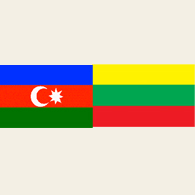Azerbaijan, Baku, March 1 / Trend , E. Ostapenko /
Although the Nagorno-Karabah conflict is also a problem of the international community, only Azerbaijan is actively trying to find a solution to the problem, Lithuanian public figures engaged in the problem of Nagorno-Karabakh believe.
"Only the [Azerbaijani] government can find the way out. If one relies on the EU, it can continue forever," Richardas Lapaytis, Lithuanian socio-political newspaper editor, said.
Lapaytis, together with Imantas Melyanas, advisor to the chairman of the Economy Committee of Lithuania, was on a five-day visit to Baku to continue his work on the investigation of the Khojali genocide and the Nagorno-Karabakh conflict.
On Feb. 25-26, 1992 Armenian occupation forces burned down the Azerbaijani town of Khojali and then occupied it.
Armenian troops committed genocide in Khojali on Feb. 26, 1992. The tragedy began early morning and within hours over 613 unarmed Azerbaijani citizens were killed. Among them were 106 women and 83 children. About 1,000 people were disabled by shots and eight families were fully destroyed. A total of 25 children lost both of their parents and 130 children lost one of them. About 1,275 people were taken prisoner and around 150 people went missing.
Now, the information fight is very important for bringing the facts of the Armenian-Azerbaijani conflict to the attention of the world community, Melyanas said.
"Not bullets but words are important today," Melyanas, author of numerous publications on the problems of the Caucasus region, said.
Without knowing the details of the conflicts, European politicians fall under the influence of Armenian propaganda, he said. When the society reaches understanding, politicians, including those who act consciously will not be able to continue their game.
"The international law is on Azerbaijan's side," he said.
Lapaytis shared his memories that in the 1990's years in Lithuania no one covered the tragedy in Khojali. Armenian sources wrote that only a few people were killed.
The conflict between the two South Caucasus countries began in 1988 when Armenia made territorial claims against Azerbaijan. Armenian armed forces have occupied 20 percent of Azerbaijan since 1992, including the Nagorno-Karabakh region and seven surrounding districts.
Azerbaijan and Armenia signed a cease-fire agreement in 1994. The co-chairs of the OSCE Minsk Group - Russia, France, and the United States- are currently holding peace negotiations.
Armenia has not yet implemented the U.N. Security Council's four resolutions on the liberation of the Nagorno-Karabakh region and the occupied territories.






